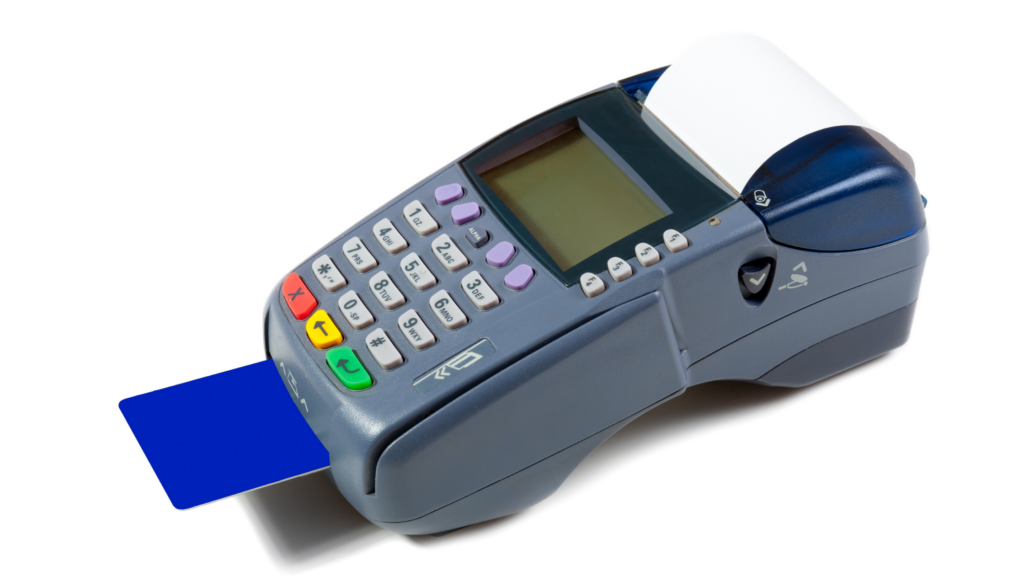In the ever-evolving retail and hospitality landscape, businesses face the critical challenge of keeping up with consumer expectations for quick, seamless service. Unfortunately, many are held back by outdated point-of-sale (POS) systems. These traditional setups are not only slow and inefficient but can also offer valuable insights into customer preferences and inventory management. The result? Lengthy transaction times, dissatisfied customers, and a noticeable gap in market responsiveness. Business owners struggle to compete, as they cannot leverage the advantages of modern technology to enhance their operations.
Now, picture your business during its busiest moments, with lines of customers growing longer and their patience wearing thinner. Each second of delay due to an antiquated POS system tests their loyalty and puts unnecessary pressure on your staff. They’re forced to apologise for delays that are beyond their control instead of engaging with customers and driving sales. At the same time, the lack of actionable data leaves you flying blind, unable to optimise your stock levels or tailor your offerings to meet consumer demand. This scenario isn’t merely inconvenient; it directly threatens your business’s survival, stifling growth and eroding customer trust at every turn.

Intelligent POS systems represent a transformative solution for businesses looking to overcome these challenges. Imagine enabling your operation with technology that streamlines transactions in seconds, impresses customers, and encourages their return. More than just facilitating faster checkouts, intelligent POS systems are equipped with powerful analytics tools. These systems provide deep insights into customer behaviours, sales patterns, and inventory requirements, allowing for informed decision-making and strategic planning.
Adopting such technology doesn’t have to be daunting. The market offers various solutions tailored to different business sizes and types, with support and training to ensure a smooth transition. By embracing intelligent POS technology, businesses can meet and exceed customer expectations, thereby distinguishing themselves in a competitive marketplace. The shift away from outdated systems opens the door to enhanced efficiency, insightful data utilisation, and greater profitability and growth.
Traditional POS
In the UK, the payment processing landscape is rich with history and innovation, reflecting a market that has long embraced the convenience and security of electronic transactions. The traditional card machine, known by various names such as POS (Point of Sale) terminal, PDQ (Process Data Quickly) terminal, EFTPOS (Electronic Funds Transfer at Point Of Sale) machine, or simply a credit card terminal, remains a staple in British commerce. Despite the diversity in terminology and the array of manufacturers producing these devices in different sizes and shapes, their core function remains consistent: facilitating electronic payments through chip, contactless, or magnetic stripe methods.

The inception of the card machine marks a pivotal moment in the history of payment terminals, revolutionising the way transactions are conducted. These devices work by reading a credit or debit card, including those saved on mobile phones within digital wallets, and processing the transaction over a secure internet connection, culminating in printing a receipt to confirm the transaction’s success or failure.
EFTPOS machines, as they are often termed, are primarily designed for card payments, though they might include additional functionalities like manual entry for telephone payments or the capability to print Z reports. These reports are crucial for businesses, summarising daily sales totals by card type, noting failed transactions, refunds, and other transaction-related data centred around card payments.
Historically, reliance on card terminals was confined strictly to payment processing. However, the advent of smart terminals, which process cards with inbuilt microprocessors, has broadened the definition of a card machine. Today, the trend is shifting towards touchscreen card terminals, a move influenced by the widespread consumer familiarity with iPads, smartphones, and other touchscreen interfaces found in various settings, from supermarkets to airport check-in terminals.
This shift reflects a broader trend in consumer expectations and technological advancements. As the UK market continues to evolve, integrating smart, touchscreen POS terminals represents a technological upgrade and a response to the growing demand for more intuitive, efficient, and versatile payment solutions. These innovations underscore a market that is adapting to changes in technology and consumer behaviour and is also at the forefront of the global payments landscape.
From Intelligent to Intelligent POS
Transitioning from “intelligent” to “intelligent POS” terminals signifies a pivotal shift in the payment industry, a shift deeply intertwined with the emergence of smart card technology, especially the introduction of the EMV (Europay, Mastercard, Visa) chip card. These cards, embedded with a microchip, brought a new layer of security to transactions, enabling terminals with microprocessors to verify transactions electronically. Terminals capable of processing EMV cards, along with NFC (Near-Field Communication) and other forms of contactless payments, were initially dubbed “intelligent terminals.” This designation applied to a wide range of terminals, from traditional push-button and non-touch displays to more sophisticated models, offering enhanced processing and security features.

Today, the term “intelligent terminals” has broadened to encompass the growing trend of touchscreen technology in payment terminals. Contemporary intelligent terminals may feature both a touchscreen and a physical keypad for PIN entry or exclusively use touchscreen interfaces, reflecting the evolving consumer expectations and comfort with digital interactions. The integration of touchscreen technology transforms the user experience and extends the functionality of these terminals beyond simple card processing.
Much like smartphones, which combine numerous applications and functions into a single touchscreen device, today’s intelligent terminals offer a wide array of capabilities through an integrated app marketplace. This allows for the customisation of the terminal with specific features, enhancing its utility with functionalities such as built-in cameras or compatibility with weight scales.
A prime example is the Ingenico Move/5000 terminal, which marries the traditional aesthetics of EFTPOS machines with the advanced functionality of a touchscreen interface, catering to diverse user preferences and maintaining ease of use without compromising on capabilities.
The evolution towards intelligent POS terminals—or IntelligentPOS terminals, as termed by some tech aficionados—emphasises a move to devices primarily featuring touchscreens for both navigation and PIN entry, thus doing away with physical keypads. This development reflects the broader trend of integrating point-of-sale operations with intelligent functionalities, hence the term “intelligent POS terminals.”
Products such as the Clover Station and its portable variants, the Flex and Mini, illustrate the advent of intelligent POS terminals. These devices facilitate card processing and feature navigation via a touchscreen interface, demonstrating the seamless fusion of payment processing with comprehensive POS functionalities. This advancement points to a future where traditional payment processing and extensive business management solutions increasingly converge, heralding a new era of interactive, versatile, and user-friendly payment systems in the retail and hospitality industries.
Characteristics of an Intelligent POS Terminal
The array of software capabilities accessible on these terminals is made available through the manufacturer’s Android-based application marketplace, often with flexibility for integrating additional software or developing bespoke applications tailored to the terminals.
Such functionalities might include promotions displayed directly on the terminal screen, customer loyalty schemes, barcode scanning capabilities, a comprehensive product library, and even facilities for recording parcel deliveries for courier services.
Poynt Intelligent POS Terminal The Poynt intelligent terminal (61B model) features dual screens, one for the cashier and another facing the customer. Photo: Elavon
Like the variety seen in simpler card processing machines produced by various manufacturers, intelligent payment terminals are available in numerous forms and brands, such as the Spire IntelligentPOS terminals, Verifone Carbon series, and myPOS Intelligent series.
Moderninha Intelligent Terminal. Photo: PagSeguro

In terms of technical specifications, intelligent POS terminals might:
- Feature one or two touchscreens, with one often designated for customer interaction.
- Utilise a physical keypad or opt for on-screen PIN entry (PIN on glass) and signature capture.
- Support various card payment methods, including contactless, chip, and magnetic stripe swipes.
- Include an integrated camera for barcode scanning, among other uses.
- Operate over WiFi, 4G, or 3G connections.
- It is equipped with a built-in receipt printer.
- Offer portability, stationary setups, or a combination of both, with certain models from the same manufacturer capable of synchronisation, as seen with Clover POS by First Data.
Furthermore, despite their advanced standalone capabilities, most intelligent POS terminals can still be integrated with traditional POS systems, external barcode scanners, and other peripherals to enhance functionality as needed.
Frequently Asked Questions
What is an Intelligent POS System?
Intelligent POS systems are advanced point-of-sale solutions that streamline transactions and provide deep insights into customer behaviours, sales patterns, and inventory requirements through powerful analytics tools. They are designed to meet and exceed customer expectations by offering quick, seamless service, thereby enhancing business operations and competitiveness in the market.
How Do Intelligent POS Systems Differ from Traditional POS Systems?
Unlike traditional POS systems, which primarily process payments, intelligent POS systems feature a wide array of capabilities, including touchscreen interfaces, integrated app marketplaces for custom functionalities, and advanced security measures through EMV chip technology. They offer comprehensive business management solutions, transforming the user experience and extending beyond simple card processing.
Can Intelligent POS Systems Integrate with Other Business Software?
Yes, intelligent POS systems often come with the flexibility to integrate additional software or develop bespoke applications tailored to the terminals. This allows businesses to enhance their POS system’s functionality with features such as customer loyalty schemes, barcode scanning, and product libraries.
What Are Some Examples of Intelligent POS Terminals?
Examples include the Poynt Intelligent POS Terminal (61B model) with dual screens for cashier and customer interaction, the Ingenico Move/5000 terminal that combines traditional aesthetics with touchscreen functionality, and various models from brands like Spire IntelligentPOS, Verifone Carbon series, and myPOS Intelligent series.
What Technical Specifications Do Intelligent POS Terminals Have?
Intelligent POS terminals may feature one or two touchscreens, with options for physical keypads or on-screen PIN entry (PIN on glass). They support contactless, chip, and swipe card payments, include inbuilt cameras for barcode scanning, operate over WiFi, 4G, or 3G, and come equipped with a built-in receipt printer. These terminals can be portable, stationary, or both, with some models capable of synchronisation for enhanced functionality.
How Can Businesses Transition to an Intelligent POS System?
Transitioning to an intelligent POS system is made easier by various solutions tailored to different business sizes and types. The market offers comprehensive support and training to ensure a smooth transition, allowing businesses to quickly start benefiting from the enhanced efficiency, insightful data utilisation, and greater profitability that these systems provide.
Final Words
In the rapidly evolving retail and hospitality landscape, the shift towards intelligent POS systems marks a crucial step forward in meeting the ever-growing consumer demand for efficiency, convenience, and personalised service. As businesses grapple with the challenges posed by outdated POS systems, adopting intelligent solutions offers a beacon of hope. These systems streamline transactions and reduce wait times and unlock a treasure trove of data analytics, providing invaluable insights into customer behavior, inventory management, and sales trends. The result significantly enhances operational efficiency, customer satisfaction, and overall business growth.
With their advanced features and capabilities, intelligent POS terminals stand at the forefront of this technological revolution. From offering seamless payment processing to supporting a wide range of functionalities through integrated app marketplaces, these terminals redefine the point-of-sale experience. They cater to the modern consumer’s expectations for digital interactions while providing businesses with the tools they need to thrive in a competitive market. Whether it’s through improved transaction speeds, enhanced security measures, or the ability to tailor services and products to customer needs, intelligent POS systems represent the future of commerce.
As we reflect on the transformative potential of intelligent POS systems, it’s clear that the journey towards smarter, more responsive retail and hospitality environments is well underway. These systems not only promise to bridge the gap between traditional and digital commerce but also empower businesses to exceed customer expectations in ways previously unimagined. We invite you to share your thoughts and experiences in the comments below. How do you see intelligent POS systems shaping the future of your industry?


